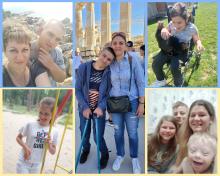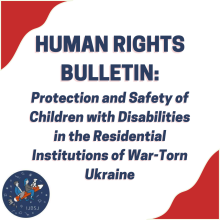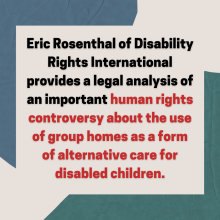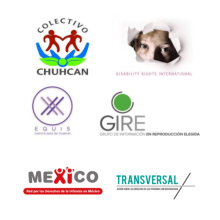Families Find A Way: Children with disabilities in war-torn Ukraine
Date
Disability Rights International (DRI) and our affiliate Disability Rights Ukraine (DRU) have, over a ten-year period¹, documented the human rights concerns of more than 100,000 Ukrainian children – with and without disabilities – placed in congregate settings and left to grow up segregated from families and society in orphanages, boarding schools, psychiatric facilities, and other institutions.





